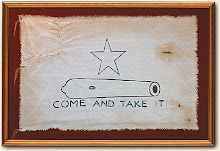The editorial board wants "the 51 senators who like the thought of guns in the parks -- and everywhere else, it seems -- to realize that the innocence of Americans is better protected by carefully controlling guns than it is by arming everyone to the teeth." As usual, the Times editors seem unaware of how silly their argument is. To them, the choice is between "carefully controlling guns" and "arming everyone to the teeth." But no one favors "arming everyone to the teeth" (whatever that means). Instead, gun advocates favor freedom, choice and self-responsibility. If someone wishes to be prepared to defend himself, he should be free to do so. No one has the right to deprive others of the means of effective self-defense, like a handgun.
While they search for -- excuse me -- their magic bullet, innocent people are dying defenseless. That's because laws that make it difficult or impossible to carry a concealed handgun do deter one group of people: law-abiding citizens who might have used a gun to stop crime. Gun laws are laws against self-defense.
Criminals have the initiative. They choose the time, place and manner of their crimes, and they tend to make choices that maximize their own, not their victims', success. So criminals don't attack people they know are armed, and anyone thinking of committing mass murder is likely to be attracted to a gun-free zone, such as schools and malls.
Government may promise to protect us from criminals, but it cannot deliver on that promise. This was neatly summed up in book title a few years ago: "Dial 911 and Die." If you are the target of a crime, only one other person besides the criminal is sure to be on the scene: you. There is no good substitute for self-responsibility. How, then, does it make sense to create mandatory gun-free zones, which in reality are free-crime zones?
The usual suspects keep calling for more gun control laws. But this idea that gun control is crime control is just a myth. The National Academy of Sciences reviewed dozens of studies and could not find a single gun regulation that clearly led to reduced violent crime or murder. When Washington, D.C., passed its tough handgun ban years ago, gun violence rose.
The press ignores the fact that often guns save lives. It's what happened in 2002 at the Appalachian School of Law. Hearing shots, two students went to their cars, got their guns and restrained the shooter until police arrested him. Likewise, law professor Glen Reynolds writes, "Pearl, Miss., school shooter Luke Woodham was stopped when the school's vice principal took a .45 from his truck and ran to the scene. In (last) February's Utah mall shooting, it was an off-duty police officer who happened to be on the scene and carrying a gun".
It's impossible to know exactly how often guns stop criminals. Would-be victims don't usually report crimes that don't happen. But people use guns in self-defense every day. The Cato Institute's Tom Palmer says just showing his gun to muggers once saved his life. "It equalizes unequals," Palmer told "20/20". "If someone gets into your house, which would you rather have, a handgun or a telephone? You can call the police if you want, and they'll get there, and they'll take a picture of your dead body. But they can't get there in time to save your life. The first line of defense is you."
The New Busy is not the old busy. Search, chat and e-mail from your inbox. Get started.

No comments:
Post a Comment